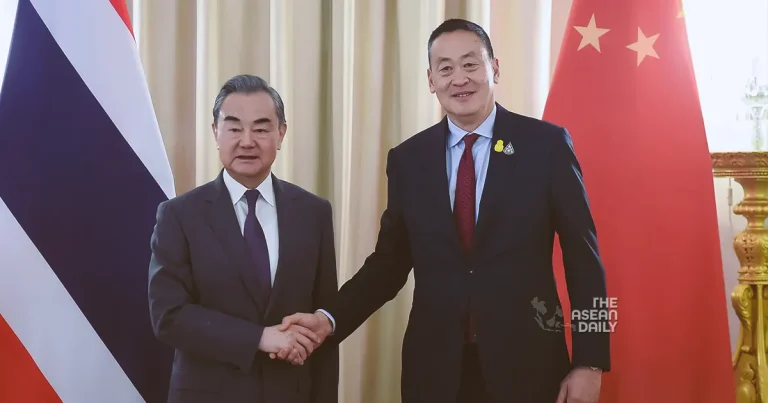30-1-2024 (BANGKOK) Despite the permanent visa-free agreement between Thailand and China, experts anticipate that air ticket prices will not immediately skyrocket. They predict a gradual increase in demand, while seat capacity has yet to fully recover.
Additionally, hotels do not foresee a surge in large tour groups flocking to Thailand as seen in the past.
China’s Foreign Minister Wang Yi met Prime Minister Srettha Thavisin on Monday during his four-day official visit, where the permanent visa-free pact between China and Thailand was finalised.
Wutthiphum Jurangkool, CEO of Nok Air, noted that following the Thai government’s announcement earlier this month regarding the permanent visa exemption starting from March 1, there hasn’t been a surge in bookings. Thai tourists awaited a clear announcement from Beijing.
He mentioned that the inbound Chinese market remains unpredictable, citing a surge in the average load factor to 90% during Chinese New Year, but quiet forward bookings post-holiday.
Before the pandemic, Nok Air operated flights to 10 cities in China, including charter flights to nearly 30 cities. However, this year, the airline is only operating flights to three cities in China: Chengdu, Zhengzhou, and Nanning.
Nuntaporn Komonsittivate, head of commercial operations at Thai Lion Air, suggested that the average airfare for China routes wouldn’t significantly change due to the reciprocal visa waiver, as demand among Thai tourists might gradually rise.
She highlighted that normally, Chinese passengers accounted for 80% of flights to the mainland, with local travellers making up 20%. With the mutual visa exemption, the Thai market’s share for Thai Lion Air’s China routes might increase to 25% initially before surging again during school holiday periods.
Regarding hotel bookings, Suksit Suvunditkul, president of the southern chapter of the Thai Hotels Association (THA), stated that the permanent free-visa scheme might not immediately boost Chinese tourist numbers during the low season due to the mainland’s weakened economy.
He noted that Phuket hotel bookings for Chinese New Year week remained steady, with a mixed market including China, India, Russia, Australia, the UK, and Kazakhstan.
Boonkerd Suksrikarn, vice-president of THA’s eastern chapter, observed that Chinese-speaking markets, including China, Hong Kong, and Taiwan, have become less dominant during Chinese New Year for Pattaya compared to before the pandemic.
Paisarn Sukjarean, president of THA’s northern upper chapter, mentioned that Chiang Mai expects fewer Chinese tourists during Chinese New Year compared to other tourist destinations like Phuket and Bangkok due to fewer flights and lower demand.
Despite a better flow of Chinese arrivals, Chiang Mai hotels still won’t see strong forward bookings from March, after the Lunar New Year ends.




